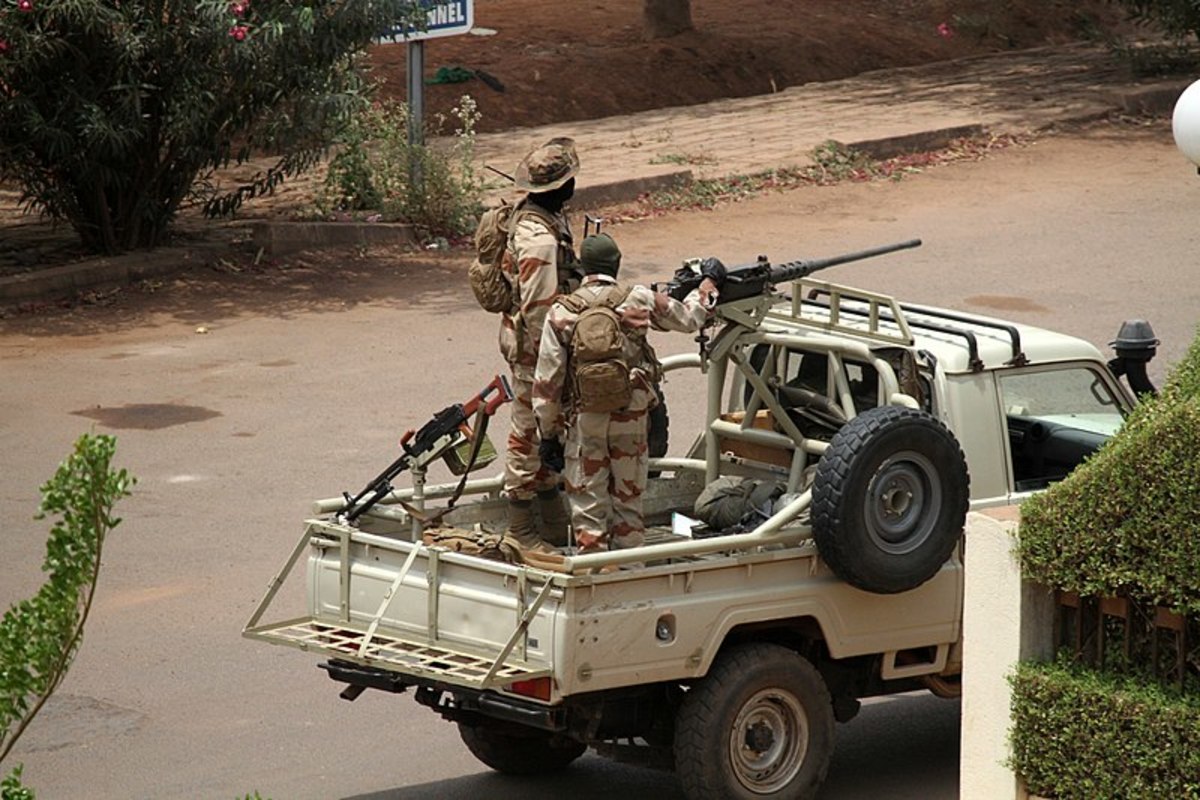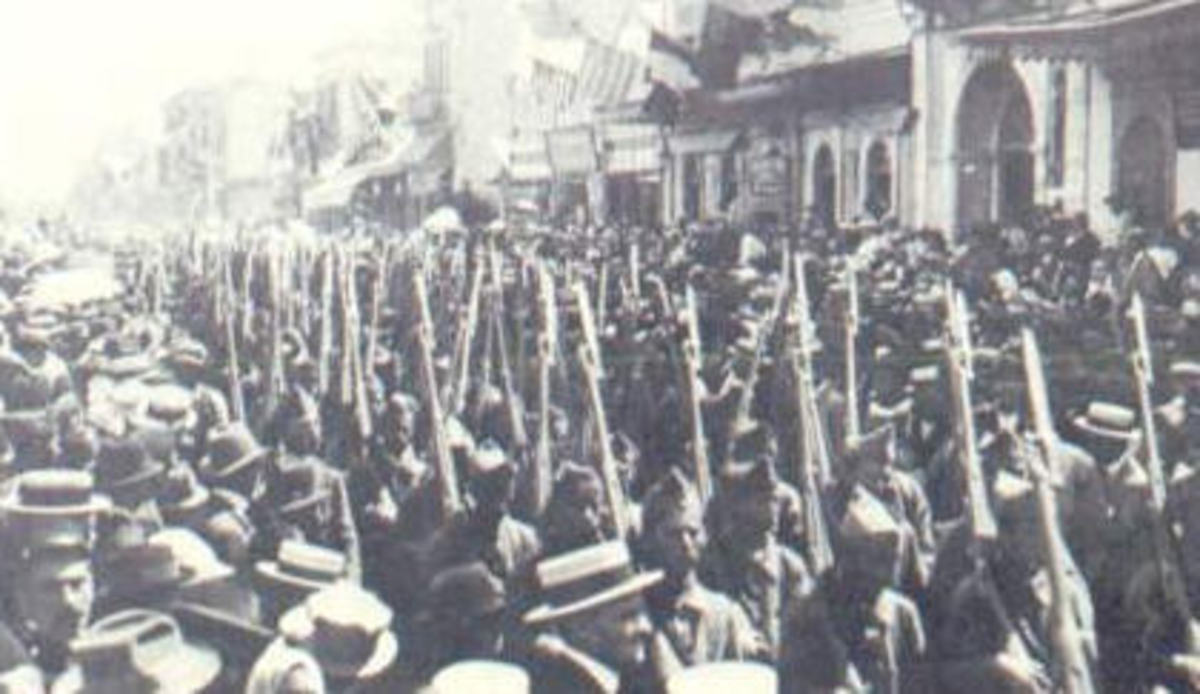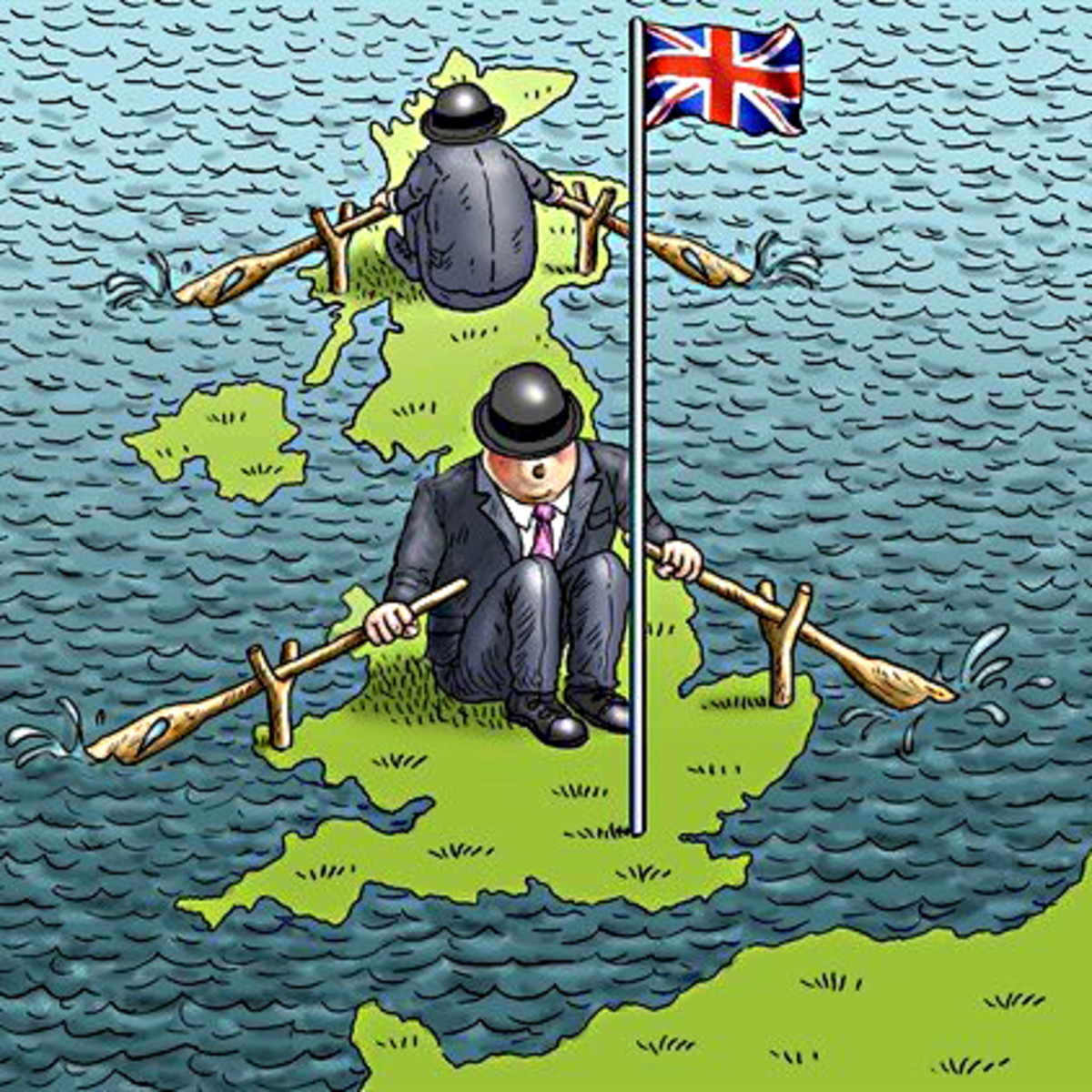Was the Attempted Coup in Turkey Fully Authentic?

Turkey rocked by yet another military coup
The attempted coup in Turkey by a faction of the military last weekend never stood a chance, ending almost as soon as it began. Members of the military clashed with others in the armed forces, police, and even civilians in Istanbul and Ankara last Friday night and into the early hours of Saturday morning.
After much drama and bloodshed, President Recep Tayyip Erdogan took control of the country by the time the sun came up, but only after a near-death experience on his flight back from vacation and a desperate FaceTime interview with CNN Turk, at 12:24 am local time in Turkey.
Erdogan urged the Turkish people: “Go to the streets and give them their answer. I am coming to a square in Ankara.”
Pro-coup soldiers were abused. One was even beheaded by pro-Erdogan supporters. The death toll of less than 300 could have been much worse, but the international, as well as internal ramifications will be felt in Turkey for some time to come.
Some 104 plotters were killed in the fighting during the coup, while 160 “martyrs” were killed, including civilians and police. More than 2,800 rebels supposedly involved, including judges and prosecutors, have subsequently been detained, with Erdogan vowing to punish those responsible.
Turkey, an increasingly Islamist and authoritarian country under Erdogan, seems to be hanging by a thread. The rebel soldiers active in the fighting called itself the “Peace Council,” claiming to be overthrowing the democratically elected government in order to “protect human rights” and restore a constitutional democracy from Erdogan’s tyrannical Justice and Development Party, or AKP. This majority party has been brutal in its suppression of anyone speaking out against them or the government, as its top priority is furthering the Sunni sect of Islam, a group that makes up 72% of this Islamic NATO country. Muslims make up about 98% of the total population of Turkey.
Similar to the Muslim Brotherhood, Erdogan’s AKP does not recognize the freedoms we hold dearly in the States. Freedom of press is ignored. Individual rights are trampled upon. And the separation of powers between church and state are nonexistent.
Erdogan has once again found a scapegoat: Muslim cleric Fethullah Gulen, who adamantly denies being any part of the violent events of last weekend. The nearly toppled Turkish leader nevertheless blamed Gulen, once an ally, who now lives in self-imposed exile in Pennsylvania, for orchestrating the entire uprising. Turkey attempted to sue the U.S. to extradite Gulen back across the Atlantic in 2014, but the U.S. refused, as Secretary of State John Kerry reportedly demanded more evidence. Gulen has been regularly blamed for political unrest in Turkey, with Erdogan saying to TRT World on Saturday that “Turkey will not be run from a house in Pennsylvania.”
Almost immediately after the coup was crushed early Saturday morning, Erdogan told the media that those loyal to Gulen had “penetrated the Armed Forces and the police, among other government agencies, over the past 40 years. What is being perpetrated is a rebellion and treason. They will pay a heavy price for their treason to Turkey.” The modern-day Turkish sultan has moved swiftly in detaining whoever he can in “relation” to this coup, a very convenient event for this oppressive regime.
This is not the first time Erdogan has blamed violence on Gulenists or other significant rivals. He continues to rule Turkey with an iron fist, cracking down on journalists, imprisoning critics, and targeting opponents. Since first elected prime minister in 2002, he has attempted to gain control of the military, his largest obstacle to complete power. In 2003, then again in 2004, a handful of senior officers were blamed by Erdogan for planning a coup. Hundreds of others were put on trial and success in the courtroom would restrict the military’s firepower significantly.

Can Erdogan be trusted?
The Anadolu Agency added that arrest warrants were issued for members on Turkey’s administrative and appeals courts right after the most recent coup, figures long on Erdogan’s blacklist. These roundups were executed so swiftly, it is certain that the lists were compiled before the uprising occurred. Members of the judiciary and the military are now being targeted so Erdogan can remove the main barriers between him and an all-powerful presidency.
Democracy in Erdogan’s Turkey is an illusion. However, since they are a NATO ally, we overlook these minor details, since they are still technically a democracy.
Erdogan will now certainly consolidate more power to himself, using the recent uprising as justification in crushing his military and political opposition.
Was this coup an attempt at regime change by an outside power? Was it just a small group in the military that wanted to take their country back from Erdogan? Or was this perpetrated by Erdogan himself in order to use it as way to accelerate the elimination of his enemies?
Either way, this seems to working out in his favor. Erdogan remains an unofficial supporter of ISIS, a Sunni Muslim group. Though he has made a show of toughness against the terrorist horde along his southern border over recent months, the events on the ground are much different from Erdogan’s portrayed reality. Interviews with an ISIS fighter, captured by the Kurdish People’s Protection Units (YPG), revealed that Turkish forces are in fact facilitating ISIS operations within Syria, as well as ISIS attacks within Turkey.
Terrorists continue to flow into the Syrian battlefields across the Turkish border, as the future of the fledgling U.S. air campaign against ISIS, operated mainly out of Turkey’s Incirlik Air Force base, now remains uncertain. In addition to soldiers, oil also flows north and south, to and from ISIS. Russian President Vladimir Putin said in Paris last November that “We have received additional information confirming that the oil controlled by ISIS enters Turkish territory on an industrial scale.” Some NATO ally!
Accusations of Turkey playing both sides have not come from out of nowhere. The Erdogan regime has long been accused of supporting terrorist groups, while his desire to usher in an Islamic-authoritarian state, far from the secular democracy that was founded some 90 years ago from the ashes of the Ottoman Empire, is well-known. Forced by an overstepping leader, the military has launched five coups since the 1960s, which is why this coup seems to have come out of left field, yet remains not all that surprising.
“I will raise a religious generation,” Erdogan declared a few years ago. He moved to pivot the country away from the secularism of Kemal Ataturk, the founder of the Turkish republic. Calling for women to stay home and raise children, Erdogan has removed any sense of freedom for the liberal sect of society. He has similarly moved against reporters, imprisoning many for simply critiquing the government in any way.
Erdogan, the former mayor of Istanbul, has also failed to live up to promises of ushering in an inclusive democracy and resolving other pressing issues, like that of the Kurds, the largest ethnic group in the world without a country. Turkey, under Erdogan’s oppressive rule, is now dealing with a recent wave of terrorism that has crushed the tourism industry. Suicide attacks in Ankara and Istanbul recently have convinced many in Turkey that peace is nowhere in site.
Do you think the recent attempted coup was real or staged?

Odd and inconsistent occurrences
But, a strange story has recently surfaced about the Turks being warned by the Russians of the coming attacks, hours before it all happened. Several Arab media outlets have quoted diplomatic sources in Ankara saying that Turkey’s National Intelligence Organization (MIT) received intel from its Russian counterpart warning of an impending coup. Russian diplomats in the region intercepted messages revealing that the Turkish army was readying to stage a coup against the administration. Included in the exchanges were the dispatching of several army helicopters to Erdogan’s resort hotel to arrest or kill the president.
A statement by the Turkish army on July 19th, after the events on the 15th, said that a majority in the military managed to suppress a coup attempt “due to information provided by the MIT some five hours before the coup plot became public.” In order to halt the overthrow in its tracks, high ranking Turkish officials ordered all air and ground forces in the country to cease operations. According to a report by Al-Jazeera, the coup plotters initiated the operation six hours ahead of schedule, suggesting that they realized their plans had been compromised and they were to be arrested.
Now, this report seems to confirm that Erdogan was not at all in charge of launching of the coup as he became a near casualty of it. However, if one looks into the events in more detail, one realizes the inconsistency of these events, forcing the Turkish people to wonder whether the entire thing was staged.
At the height of the overthrow attempt, the rebel pilots of two F-16 fighter jets had Erdogan’s plane in their sights. But, he was able to fly on. "At least two F-16s harassed Erdogan's plane while it was in the air and en route to Istanbul. They locked their radars on his plane and on two other F-16s protecting him," a former military officer with knowledge of the events told Reuters. "Why they didn't fire is a mystery," he said.
Furthermore, there was an attack that Saturday morning by a helicopter full of rebel commandos on a resort hotel in Marmais. President Erdogan was supposed to be staying there, however, “the attack took place nearly an hour after every news channel in Turkey beamed images of Mr. Erdogan addressing the nation from the airport in Istanbul, some 750km away.” This event is beyond inexplicable and possibly proves that the current administration had something to do with this failed coup d’etat after all.
Another perplexing question is why no NATO country warned Turkey beforehand of the coming coup. Did they just not have the proper intelligence? Or did they know and not give Erdogan the heads up? What is even more astounding is the fact that the headquarters for the attempted coup was located at Incirlik airfield, where NATO and American forces launch airstrikes from in the region. So, wouldn’t Western military officials have noticed some unusual activity on the ground or anything else that would’ve revealed something was going down?
Specific instances like this during the coup, coupled with the fact that it failed overall, seem to point to Erdogan being behind it all, but this cannot be said with 100% certainty yet. Skepticism nevertheless continues to grow across Turkey as many wonder who was behind the violence of July 15th.

Erdogan continues his crackdown
What is perhaps most important to note is not how the coup happened, but what happened after it. The number of people detained by the AK Party has now passed 10,000. Spokesman Yasin Aktay went on to say that this number “includes 287 police officers, 7,423 soldiers, 2,014 judges and prosecutors, and 686 civil servants, according to Anadolu News.
A three month long state of emergency was declared, allowing the president and his cabinet to bypass parliament when drafting new laws, giving the AK Party the ability to restrict or suspend rights on anyone it chooses.
More than 600 schools have been shut down and thousands have been arrested or removed from their positions, yet, Erdogan maintains that people’s everyday lives will not be impacted in anyway by this daring decree. On Tuesday, the crackdown continued with the suspension of 21,000 teachers. On Wednesday, 99 top military officers were charged in connection with the events of last weekend.
According to Reuters, some 50,000 people have been arrested or suspended from their duties. It is now the general consensus among national security analysts that the Erdogan administration will further tighten its grip on power, removing any shred of resistance that remains within the governmental power structure.
In a desperate attempt to distract from his own problems, Erdogan has even blamed the United States for participating in or even organizing the coup plot.
Glenn Greenwald of The Intercept delved into an interesting question: would Turkey be justified in kidnapping or drone striking Gulen, alleged enemy of the state, in Pennsylvania?
Col. Morris Davis, former chief prosecutor of Guantánamo’s military commissions, first raised the question on Twitter, one that needs to be taken seriously, given the extent of Obama’s deadly drone war.
Greenwald pointed out that the U.S. refusal to extradite Gulen was very similar to the response the Taliban gave the Bush administration after 9/11 when we wanted them to turn over Osama bin Laden. The Taliban’s ambassador to Pakistan, Mullah Abdul Salam Zaeef, said at a news conference in Islamabad, “Our position in this regard is that if the Americans have evidence, they should produce it.” If they can prove their allegations, he said, “we are ready for a trial of Osama bin Laden.” As history went, the U.S. refused to provide any such evidence, and so, the U.S. bombing and invasion of Afghanistan commenced two weeks later.
And guess what? We are still there…almost fifteen years later.
The U.S. continues to drone terror suspects, including its own citizens, at will and around the world. Yet, if Turkey did the same thing in Pennsylvania, the consequences would be dire, therefore, no one has yet dared try it. According to Greenwald, this is “American Exceptionalism in its purest embodiment: The U.S. is not subject to the same rules and laws as other nations, but instead is entitled to assert power and punishment that is unique to itself, grounded in its superior status.” The U.S. has not not yet proven it can be responsible with its newfound power. We therefore cannot pretend to know what is best for other countries, acting superior to the rest.
Is the U.S. meddling in Turkey’s political affairs to gain a more supportive ally in the fight against ISIS?
What Turkey does from here is anyone’s guess. The likely scenario is that Erdogan continues to consolidate power, alienate much of the country, reshuffle key organizations, and kick down his opposition. This will eventually lead to possibly yet another coup or, at the very least, continued violence and division.
Worst case scenario? A deadly Syrian civil war style conflict, but with well over three times the population and a much larger military.
Was this even a real coup? Or just an excuse to turn Turkey into a dictatorship?








